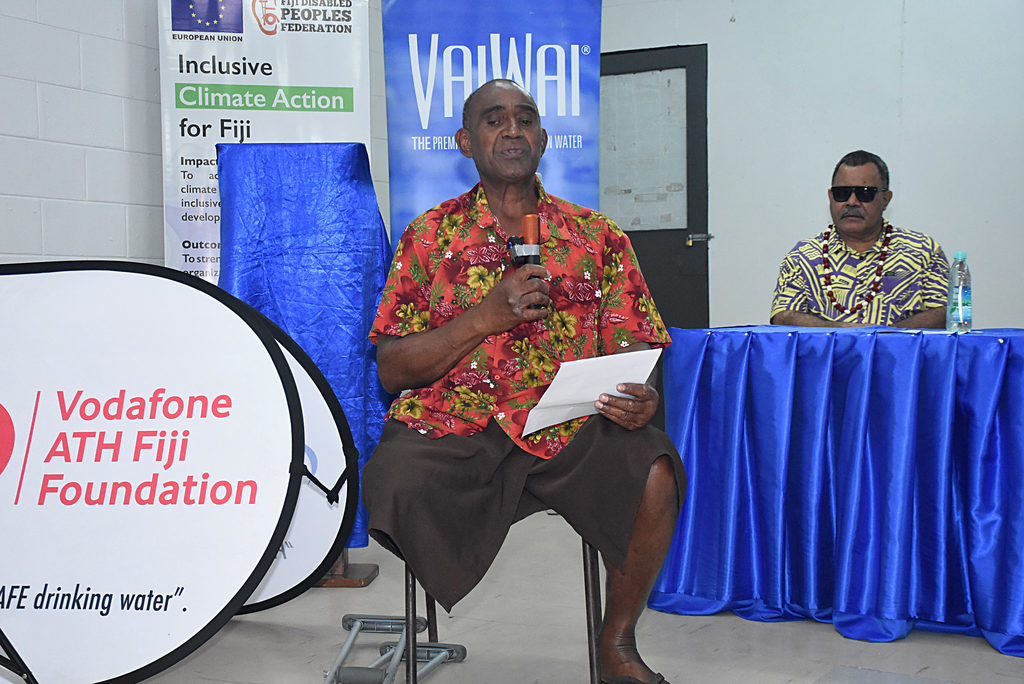For 19 years, Ifereimi Kilisama has had to walk 20 metres from his house in Nakorobalavu, Nadroga, to a relative’s home every time he needed water.
That walk has always been done on crutches – many of which have broken under the weight of countless buckets of water the 63-year-old has had to carry back to his house.
“I was hit by a 10-wheeler truck in 2002,” he said.
“It took me four years to recover and regain some strength after the accident to be able to walk on crutches.
“I didn’t have taps in my house or any water supply so the closest I had to walk to get water was from a cousin’s house about 20 metres away.”
Yesterday, Mr Kilisama was announced as one of 22 individuals living with disabilities who would benefit from a rainwater harvesting system which involves the installation of a water tank at his home.
“I have broken four crutches already from years of lifting buckets of water back to my house.
“In the 23 years I’ve been living with this disability, some days I accept things the way they are but there have also been days where I’ve cried out to God about my circumstances and just asked Him to fill me with peace to keep going on.
“When I was told I was one of the beneficiaries of this initiative, I was so overjoyed and agreed to come from Nadroga to speak on how this would change a lot for me.”
The rainwater harvesting initiative was launched yesterday under the European Union’s Inclusive Climate Action for Fiji project in partnership with the Rotary Pacific Water for Life Foundation, Vodafone ATH Fiji Foundation, Vai Wai, the Fiji Disabled Peoples Federation and 16 households with individuals living with disabilities who were identified as beneficiaries.
“This tank will make things so much easier,” said Mr Kilisama.
“For 19 years I’ve been frequenting my cousin’s house just to get water and when the water supply in the house starts to get low, I would be filled with dread because I knew I had to start making those walks to and fro for water.
“This support is life-changing for me – it means I no longer have to stress over water supply and I can finally access water from my own home.”



